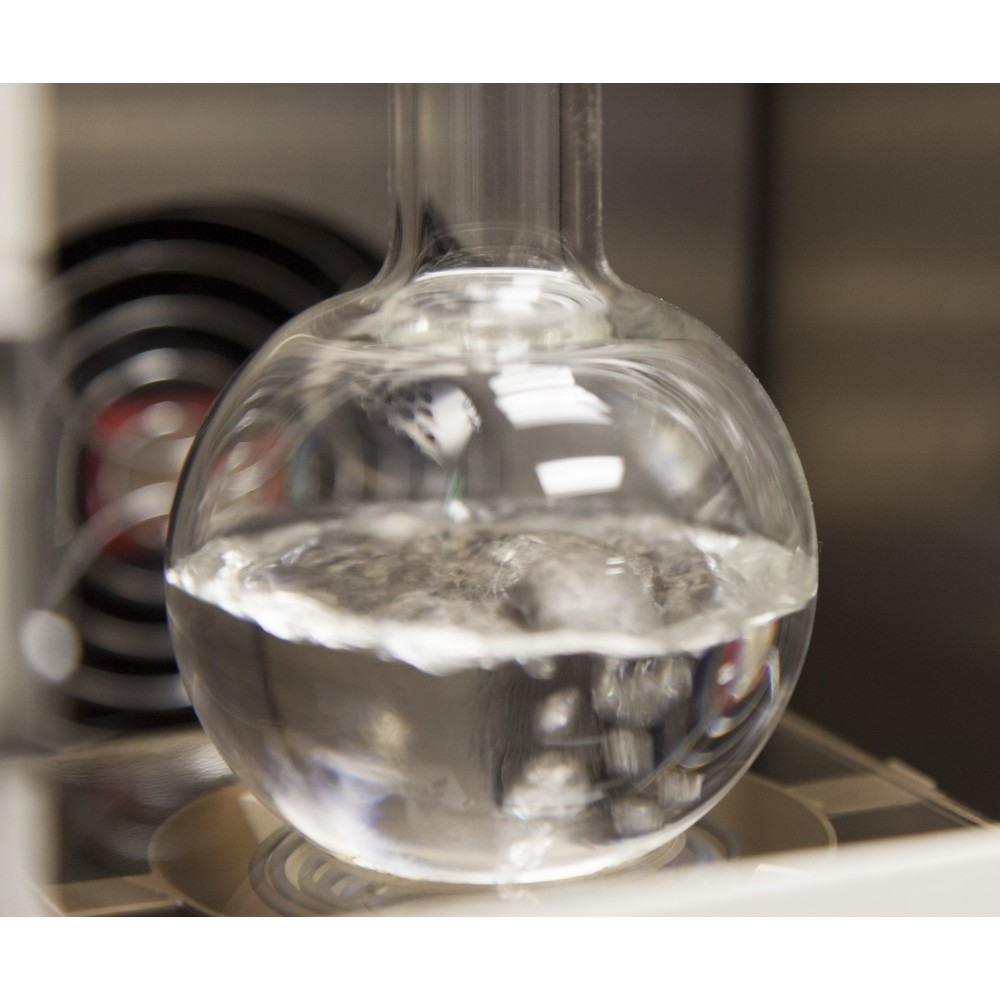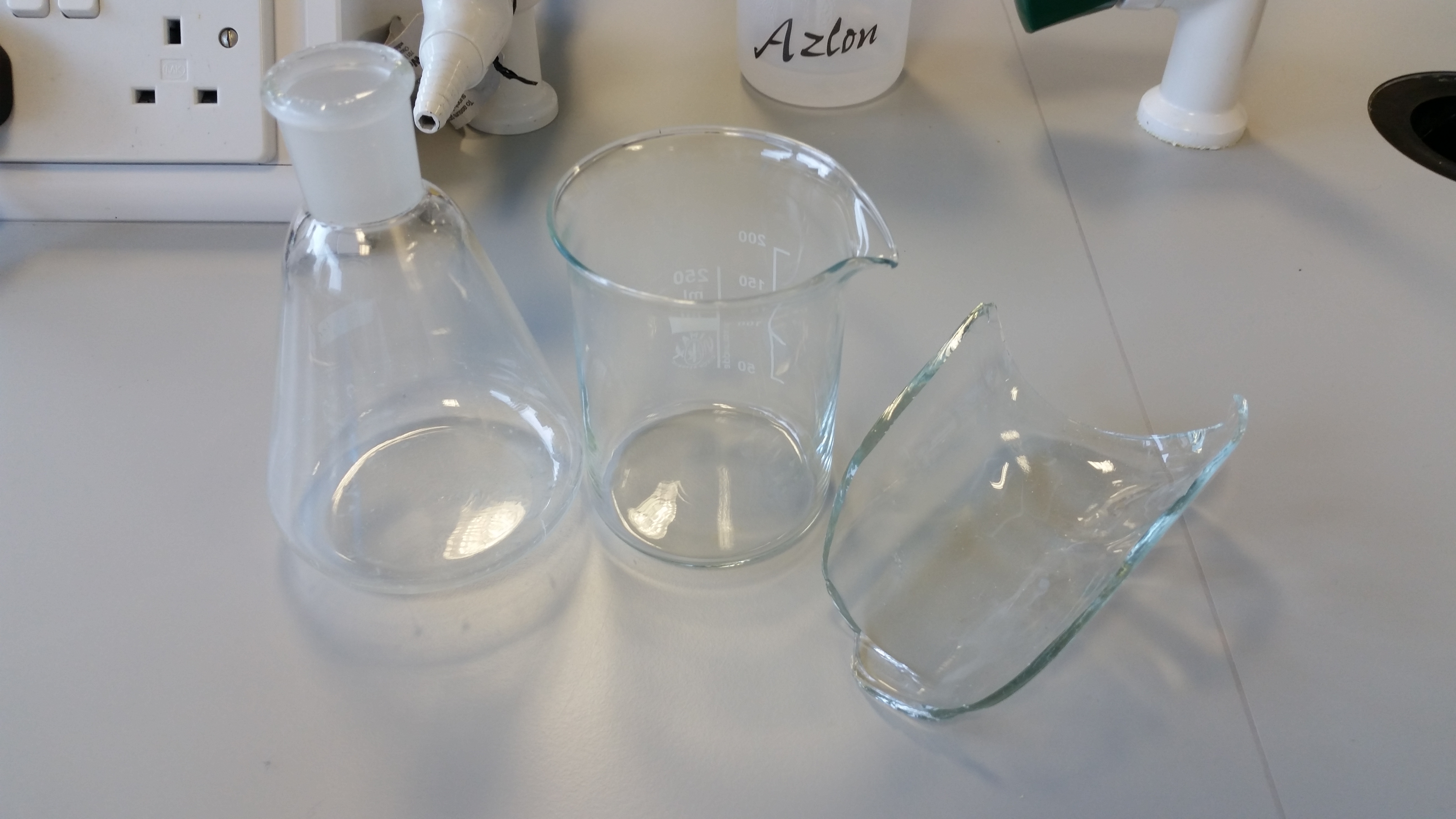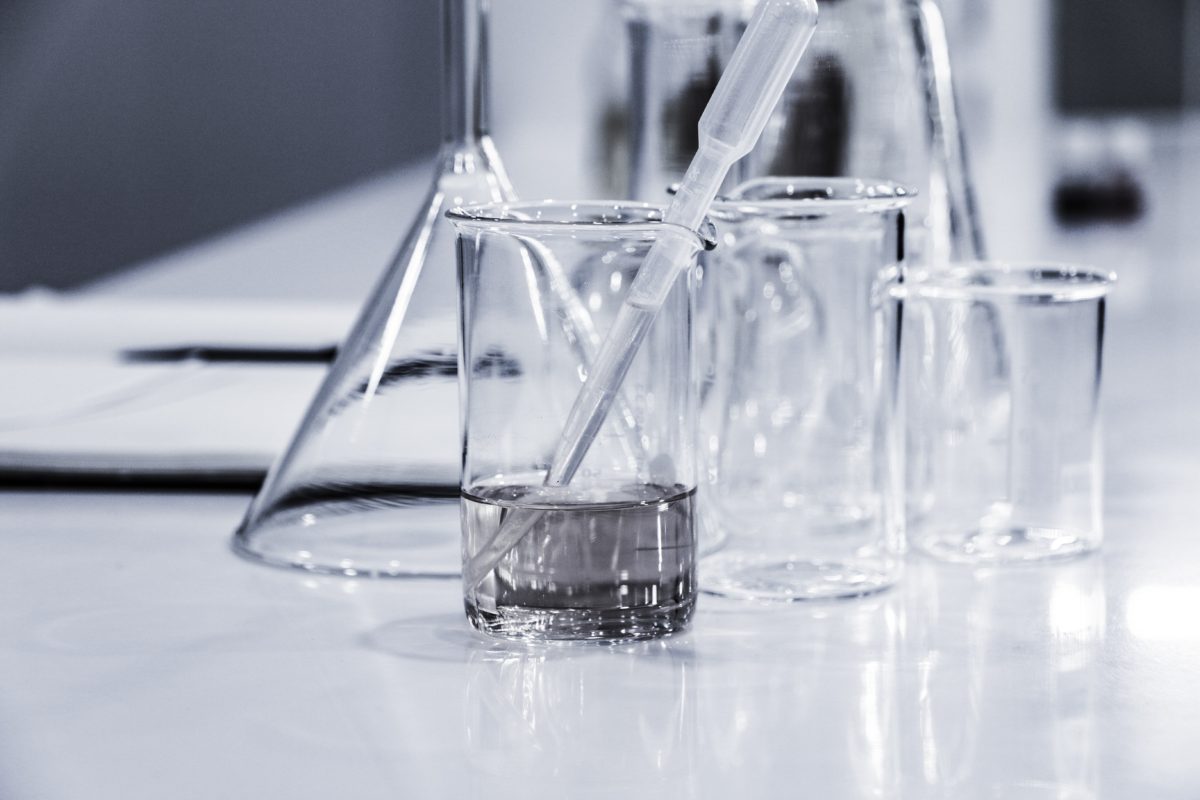Laboratory glassware is necessary for virtually every type of chemical and biological analysis. Borosilicate glass, which is made of silica and boron oxide, is the most common material for laboratory glassware, due to its resistance to high temperatures and corrosive materials.
Shop chemistry glassware & plasticware for lab experiments, including beakers, flasks, cylinders Chemistry glassware works best when it's clean and free from residue. To achieve that, wash We guarantee our products and service won't mess up your science study—no matter how messy it gets.
How to Wash Out Common Lab Chemicals. Water Soluble Solutions (, sodium chloride or sucrose solutions) Rinse 3-4 times with deionized water then Washing Special Glassware. Glassware Used for Organic Chemistry Rinse the glassware with the appropriate solvent. Use deionized water
Glass shatters, chips, and/or breaks very easily. Due to this, we have provided information on the safe handling of glassware, including the correct The glassware used in labs can be roughly divided into "soft" glass and "hard" glass. "Soft" soda-lime glassware is not heat resistant because it has a
Laboratory glassware can generally be divided into two main types based on how they measure volumes However, some glassware such as volumetric flasks and volumetric pipettes only have a single line to indicate volume. This is because they are made to measure just one specific volume.
Thoroughly cleaning lab glassware will help prevent cross-contamination that can skew experiment results and lead to inaccurate findings. While cleaning glassware may seem like a simple task, it is a more complex process than one might assume. To learn how to properly sterilize your lab
Skincare Lab Essential 4: Lab Glassware. Beakers come in all sizes and shapes, and you cannot get enough of them, truth be told! Sanitising essentials part 1, the formulator: good old fashioned regular hand washing with a plain bar or liquid soap as a regular routine in your skincare lab.

stemi embolism saudi tctmd
Lab glassware can be dried by hand, on a drying rack, or in an oven. The overall time expended for hand washing is significant and may even Use automatic laboratory glassware washers. Created to clean a wide range of lab glassware and related contaminants, the lab glassware washer
Cleaning Laboratory Glassware. General Procedure For All Glassware. You can de-grease ground glass joints by wiping them with a kimwipe soaked with hexane or acetone. Do this in the hood vent to prevent you from breathing in the chemicals.

bottle wash squeeze plastic tattoo laboratory spray 250ml 1pc soap diffuser non 2pc lot 500ml ink equipment mouse zoom aliexpress
1. For washing glassware used for chemical processes and has old crud caked on it, you may have to soak the glassware in acid (chromic acid?) first to dissolve the crud. Then a wash with a detergent and distilled water rinse would be order. It would be hard to do all this with a machine.
Laboratory glassware refers to a variety of equipment used in scientific work, and traditionally made of glass. Glass can be blown, bent, cut, molded, and formed into many sizes and shapes, and is therefore common in chemistry, biology, and analytical laboratories.
Glassware designed for this level of accuracy and precision is expensive, and requires some care and skill to give best results. Four main types of volumetric glassware are common: the graduated cylinder, the volumetric flask, the buret and the pipet.

Glassware. Most of the laboratory ware are utilized in the clinical chemistry laboratory is either glass or plastic; these may be of a different type. This glass is easy to melt and shape. These are used to make bottles and some disposable laboratory glassware. This glassware must be rinsed with
I have to wash glassware before culturing bacteria in LB media with different concentration of heavy metals. I have come across 3 acidic solutions and need suggestions on which one to use and for how long? The idea is to not allow the metal particles adhere to glass surface ( first use glassware).
Cleaning Laboratory Glassware. Смотреть позже.
This will cover lab and process equipment across biotech, medical device, pharma, cosmetics and scores of other industries as well. It is very important to pay attention to how glassware and equipment is loaded in to a washer so as to minimize trapping any water from cycle to cycle - often

glass apparatus astm test methods glassware egypt

bottle wash laboratory function plastic bottles chemical glassware lab glass equipment advantage heat safe application
Laboratory glassware refers to a variety of equipment, traditionally made of glass, used for scientific experiments and other work in science, especially in chemistry and biology laboratories. Some of the equipment is now made of plastic for cost, ruggedness, and convenience reasons, but glass is
Hand washing laboratory glassware can consume a high volume of water. Since hand washing dishes in a residential setting is far different than washing flasks and beakers in the lab, Labconco conducted a study to determine the quantity of water used to hand wash laboratory glassware.
Proper cleanliness of laboratory instruments and glasswares is not a piece of cake. While cleaning glassware, you must be extra cautious so that you do not break and damage any apparatus. To be able to clean your laboratory instruments properly, you first need to comprehend the basics of it.
Learn how to properly clean your laboratory glassware to improve your lab technique and insure high quality results. Cleaning Laboratory Glassware. Wash labware as quickly as possible after use. If labware is not cleaned immediately, it may become impossible to remove any residue.
Cleaning laboratory glassware isn't as simple as washing the dishes. Here's how to wash your glassware so you won't ruin your chemical solution or laboratory experiment. Lab Glassware Cleaning Basics. It's generally easier to clean glassware if you do it right away.
laboratory glassware in bluefic2, cong nghiep san xuat laboratory glassware, vlads laboratory lessons glassware unit conversions, glassware essentials, laboratory glass distiller bionics scientific, how to wash lab glassware part 1, cornucopia of

retort chemistry glass equipment glassware laboratory labs distillation science vessel piece
Laboratory Techniques and Methods to Improve your Experimental Skills. You are expected to learn and adhere to the safety guidelines in your lab to ensure a safe laboratory environment for both yourself and the people you may be working near.

lab broken glassware chemistry injury cause unsafe brighton bottles solvent
Cleaning laboratory glassware. Hi there Is their a go-to for cleaning cloudy glassware? I just started a new job that has pretty dingy glassware. There are degrees of cleanliness. For many lab operations, simple washing with a mild detergent, followed by three rinses with distilled, deionized,

centrifuge conical sterile foam racked dnase rnase graduations globe
How to Clean Cloudy Glass and Prevent Future Buildup. Say goodbye to vessels that always look dirty You just washed a batch of glasses, but for some reason they still look foggy and in desperate need of "If the film is etching, which happens to some types of glassware in the dishwasher,
I subsequently wash it thoroughly with milliQ water. I like having clean glassware. I pulled up msds on alconox and liquinox. They are very different chemicals. If you're just using it for hand washing, you probably don't need an ultra-concentrated solution.

lab glassware cleaning laboratory washer detergent powder liquid alconox technotes labware equipment
Laboratory Glassware Cleaning. If the lab glassware is cleaned immediately after use then the problems associated with dirt can be controlled to a great extent. If detergent is used for laboratory glassware washing, it should be the one that is specially designed for lab glassware cleaning.
How to wash lab glassware (2:24). Cleaning Laboratory GlasswareПодробнее. How To Clean Laboratory GlasswareПодробнее. Glassware CleaningПодробнее. Cleaning Glassware in Introductory Chemistry Lab - only use soap if absolutely necessaryПодробнее.
3). The laboratory glassware can be easily washed with detergents or products like lab wash, alconox etc. Once these glassware are thoroughly cleaned then rinse them 3 times with deionized water.
Does anyone know if methanol's a suitable cleaning solvent for cleaning lab glassware? Or would I be better off going for something more expensive like propanone or propan-2-ol? I know methanol's more toxic, but that shouldn't be a problem as long as the area's well-ventilated, right?
